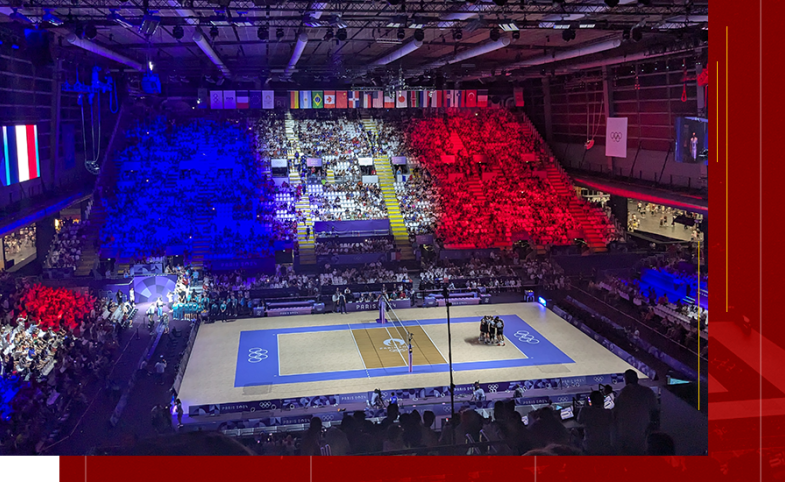“Public Diplomacy in the News” is a CPD Blog series by Andrew Dubbins that spotlights noteworthy stories on public diplomacy topics such as cultural diplomacy, nation branding, exchange programs, international...
KEEP READINGThe CPD Blog is intended to stimulate dialog among scholars and practitioners from around the world in the public diplomacy sphere. The opinions represented here are the authors' own and do not necessarily reflect CPD's views. For blogger guidelines, click here.

Public Diplomacy in the News: A North-South Korea Selfie, Olympic Houses, and Art as Soft Power
“Public Diplomacy in the News” is a CPD Blog series by Andrew Dubbins that spotlights noteworthy stories on public diplomacy topics such as cultural diplomacy, nation branding, exchange programs, international events and conferences, digital diplomacy, and strategic global communications.
Table tennis selfie unites North and South Korean athletes. The viral selfie of table tennis medalists from China, North Korea, and South Korea at the Paris 2024 Olympics has become a powerful symbol of unity amidst political tensions. The image highlights the concept of "sports diplomacy," where sports serve as a bridge to foster interaction and reduce hostilities. Despite strained relations, especially between North and South Korea, these moments on international sports platforms like the Olympics show how athletic camaraderie can transcend political discord. The selfie, captured by South Korean athlete Lim Jong-hoon, reflects the spirit of the Olympics and has been widely celebrated for promoting peace and unity.
Olympic Houses unite cultures and foster public diplomacy at Paris 2024. Olympic Houses are temporary spaces set up by participating countries during the Olympic Games to serve as cultural hubs and gathering places for athletes, fans, and media, as well as venues for public diplomacy. The Ukraine Olympic House, for example, is highlighting the resilience of its athletes amid conflict through cultural exhibitions and live concerts. UAE’s Olympic House is seeking to foster connections through cultural displays and events, according to an op-ed by Noura Al Kaabi, Minister of State at the UAE’s Ministry of Foreign Affairs. The Japan Olympic House showcases the legacy of the Tokyo 2020 Olympics and promotes Japanese culture through exhibitions and workshops. The Canada Olympic House features a digitalized maple leaf, food, and beverages, daily activities, and virtual fan support. The Team USA Olympic House offers an expensive, VIP experience with American-themed hospitality and special guest appearances.
Art's soft power enhances U.S. diplomacy in Japan. Art possesses significant soft power that can enhance American diplomacy, as evidenced by the efforts of Rahm Emanuel, U.S. Ambassador to Japan, and Madeleine Grynsztejn, Director of the Museum of Contemporary Art in Chicago. They are utilizing the U.S. Department of State's Art in Embassies program to place art in institutions across Japan and Chicago, promoting cultural diplomacy. Emanuel and Grynsztejn believe that visual arts can transcend linguistic and cultural barriers, fostering human connections. Their work includes significant exhibitions, such as Theaster Gates' solo exhibition in Japan, which bridges different artistic traditions. Emanuel emphasizes that art serves as a potent medium for sparking essential conversations and fostering mutual understanding, demonstrating that art and diplomacy are inherently intertwined.
Isiah Magsino / Town & Country
U.S. official discusses sports diplomacy at the Paris Olympics. Lee Satterfield, Assistant Secretary of State for Educational and Cultural Affairs, underscored the importance of sports diplomacy at the Paris Olympics in an interview with Marielena Balouris of Nexstar’s WAVY. Satterfield emphasized how American athletes like Katie Ledecky and Simone Biles serve as cultural ambassadors, promoting shared values and international collaboration. Satterfield highlighted the unifying power of sports and expressed enthusiasm for the upcoming Los Angeles 2028 and Salt Lake City 2034 Olympics as opportunities to showcase American values and foster international goodwill. “Now more than ever it’s critical to find roles and pathways that we can promote our shared values,” said Satterfield. “Sports is an amazing way to do that.”
Global politics shape Paris 2024 Olympics. Scholars from USC, including CPD Faculty Fellow Nicholas Cull, discussed how international sporting events like the Olympics have become politicized arenas where nations showcase their strengths and expose their adversaries' weaknesses. The participation of Russian and Belarusian athletes as Individual Neutral Athletes and the potential for protests or cyberattacks underscore the politicized nature of the Games. Historical instances, such as the U.S. boycott of the 1980 Moscow Olympics, also speak to this trend. While the International Olympic Committee aims to keep sports apolitical, reality often intrudes, with geopolitical issues such as the U.S. presidential election and the war in Ukraine looming large. Cull notes that athletes from smaller countries can use the Olympics as a platform for public diplomacy, citing Kosovo's 2016 success in women’s judo as bolstering its national recognition.
Visit CPD's Online Library
Explore CPD's vast online database featuring the latest books, articles, speeches and information on international organizations dedicated to public diplomacy.
POPULAR ARTICLES
-
January 29
-
January 20
-
January 28
-
January 2
-
January 8
Join the Conversation
Interested in contributing to the CPD Blog? We welcome your posts. Read our guidelines and find out how you can submit blogs and photo essays >.













